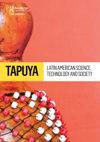阿根廷对医用大麻进行管制的公民科学
IF 1.2
Q2 HISTORY & PHILOSOPHY OF SCIENCE
Tapuya: Latin American Science, Technology and Society
Pub Date : 2022-08-25
DOI:10.1080/25729861.2022.2100037
引用次数: 1
摘要
在本文中,我们讨论的意义假设的公民科学的治疗和医疗用途大麻在阿根廷的监管,考虑到在布宜诺斯艾利斯省的三个直辖市的经验动员。通过STS领域的概念工具和技术,如对决议和条例的文献分析、参与观察和深入访谈,我们探讨了当地经验在市政监管举措发展中的作用;结合不同类型的专门知识(技术、科学、医学、法律、经验);以及社会认同的再认和转变过程。研究表明,地方法规产生于一个异质的社会基础,以公民科学的形式,围绕植物及其衍生物的治疗用途产生、使用和传播各种专业知识。报告还表明,地方政府政策的制定过程促进了某些群体(支持大麻种植的种植者、医生、儿童使用者)的新的社会观念,这些观念影响了治疗性大麻作为一个公共问题的解决方式。本文章由计算机程序翻译,如有差异,请以英文原文为准。
Citizen science towards the regulation of medical cannabis in Argentina
ABSTRACT In this paper, we discuss the meanings assumed by citizen science for the regulation of therapeutic and medical uses of cannabis in Argentina, considering the mobilization of experiences in three municipalities of the province of Buenos Aires. Through conceptual tools of the STS field and techniques such as documentary analysis of resolutions and ordinances, participant observation, and in-depth interviews, we address the role of proximity experienced locally in the development of municipal regulation initiatives; the combination of different types of expertise (technical, scientific, medical, legal, experiential); and the processes of resignification and change of social identifications. The research shows that local regulations emerge from a heterogeneous social base that, in the form of citizen science, produces, uses, and transmits diverse expertise around the therapeutic uses of the plant and its derivatives. It also reveals that the construction processes of local government policies promote new social perceptions of certain groups (supportive growers, physicians, child users) that influence the way that therapeutic cannabis is settled as a public problem.
求助全文
通过发布文献求助,成功后即可免费获取论文全文。
去求助
来源期刊

Tapuya: Latin American Science, Technology and Society
Social Sciences-Social Sciences (all)
CiteScore
1.60
自引率
0.00%
发文量
39
审稿时长
19 weeks
 求助内容:
求助内容: 应助结果提醒方式:
应助结果提醒方式:


